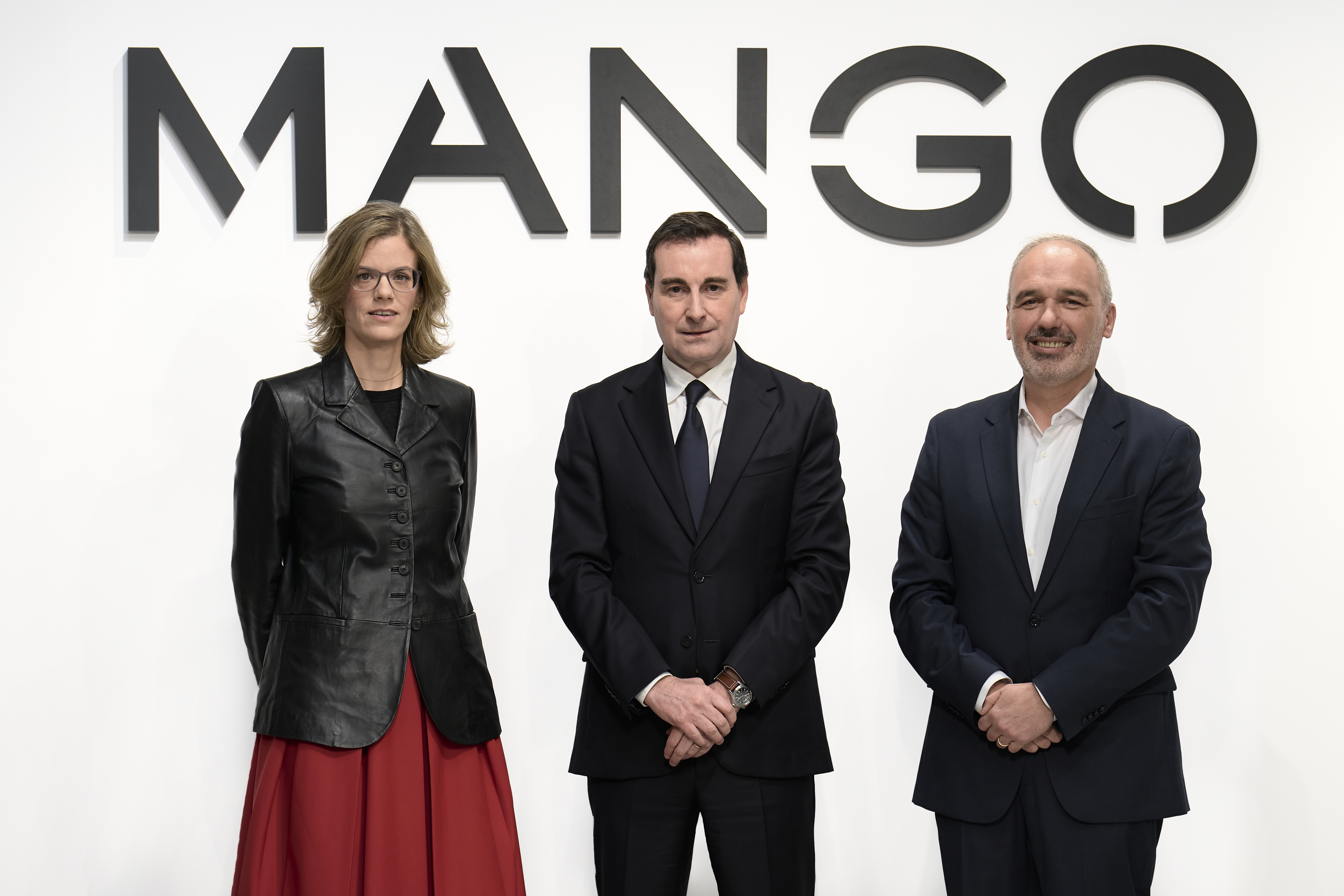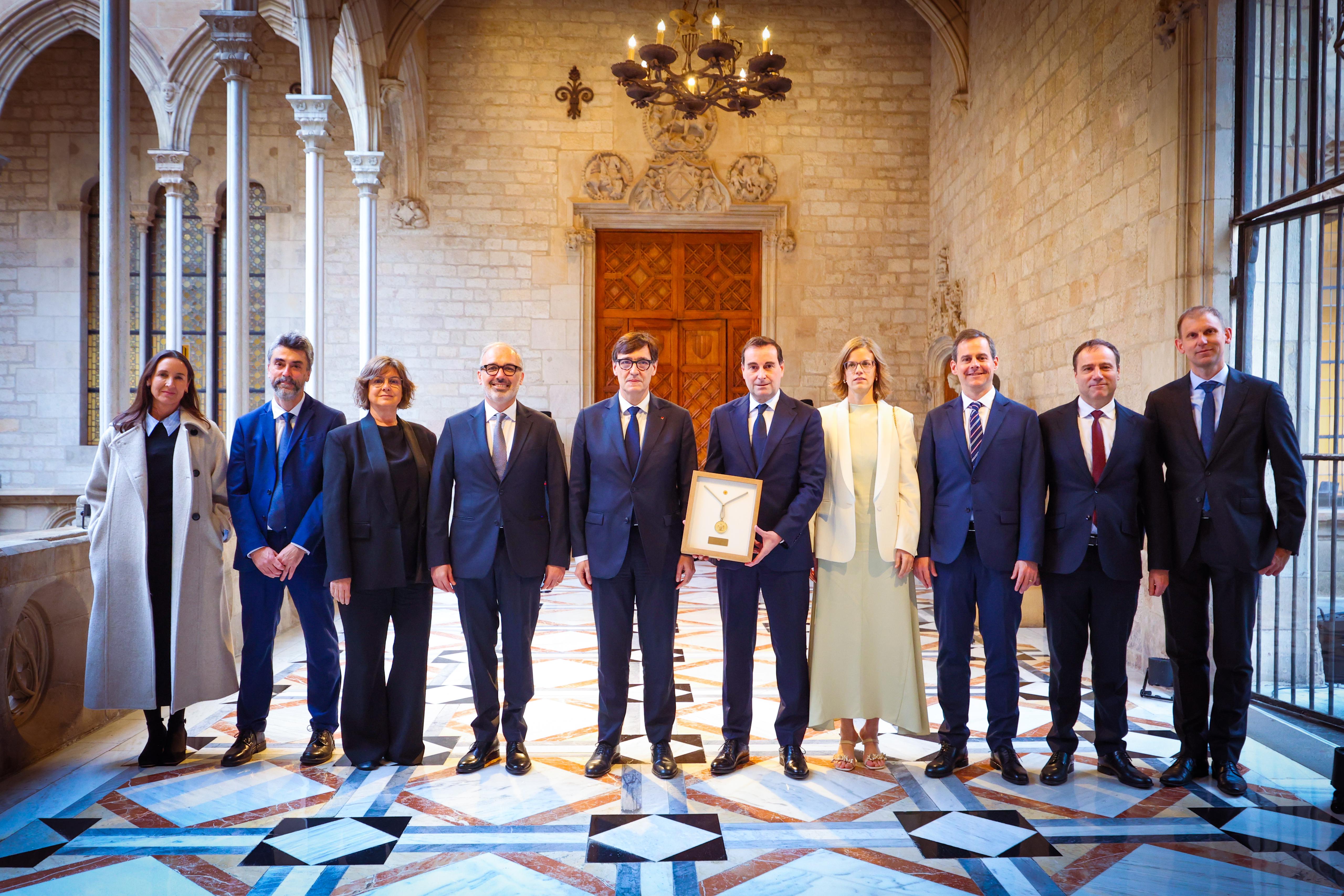Mango joins the Zero Child Poverty Country Alliance and will support activities for vulnerable children with the Costume Museum
Mango joins the Zero Child Poverty Country Alliance and will support activities for vulnerable children with the Costume Museum
-
- Mango’s Chief Executive Officer, Toni Ruiz, and the Spanish High Commissioner against Child Poverty, Ernesto Gasco, have signed a cooperation agreement.
- With this signature, Mango will strengthen its commitment to society and will collaborate with the Alliance, which is promoted by the Government of Spain, in projects to eradicate child poverty.
- The first project the company will support as a result of this collaboration is the DiseñAR-T activity, in which vulnerable children will participate in the regular programming of the Costume Museum (Museo del Traje) in Madrid from next February.
Mango, one of Europe's leading fashion groups, is taking a step further in its social commitment and joining the effort to eradicate child poverty by signing up to the Zero Child Poverty Country Alliance initiative being promoted by the High Commission against Child Poverty, a body which reports to the Presidency of the Government of Spain and seeks to ensure that all children and teenagers in our country have the same opportunities for the future irrespective of their social status.
Yesterday, the company’s Chief Executive Officer, Toni Ruiz, and the High Commissioner against Child Poverty, Ernesto Gasco, signed the agreement at a meeting held in the Moncloa Palace in Madrid. With its signature, Mango is joining the initiative and committing to collaborate with this body by promoting specific projects for the eradication of child poverty, as well as supporting social investments and awareness and dissemination actions for society.
Mango’s Chief Executive Officer, Toni Ruiz, said that “joining this Alliance reaffirms our commitment to our surroundings and to people. At Mango we try to generate a positive impact on all the groups that surround us, especially those who need it most, as is the case with vulnerable children and teenagers, and being part of this initiative will allow us to implement and support specific projects”.
For his part, the High Commissioner against Child Poverty, Ernesto Gasco, highlighted the importance of closing the gap among vulnerable children and teenagers in participating in culture: “participating in cultural activities brings major benefits to children and teenagers, especially the most vulnerable, such as the development of skills linked to educational success, improved emotional welfare, greater social cohesion and the promotion of new talent”.
Activities for vulnerable children at the Costume Museum
The first project Mango will support as part of its participation in the Alliance is the DiseñAR-T activity, part of the programme Exhibere: Museums against child poverty, being promoted by the High Commission against Child Poverty in collaboration with the Spanish Ministry for Culture and Sport, specifically with the General Sub-Directorate of State Museums, as part of the ‘Culture that transforms’ initiative.
The project, which aims to allow vulnerable children and teenagers to participate in the usual programme of the Costume Museum in Madrid, will schedule an extra-curricular attended activity between February and June next year, in order to provide them educational activities and contribute to equal future opportunities for all children and teenagers in Spain.
The DiseñAR-T activity, aimed at youngsters aged 12 to 16, will take place one evening a week during the school year (approximately 37 sessions), divided into two parts: the first consisting of a dynamic visit using the collections, and a second with a practical exercise, which will vary according to the content of the first part: debates, manual tasks relating to clothing manufacture, etc.
The central theme of the course is to learn about all the professions that converge in the clothing industry and the fashion centre: from garment design and production, the systems for disseminating today’s fashion, to its designation as a cultural representation and its consequent conservation in the Museum.
The activity will also include transversal aspects such as the construction of an image, inclusion, gender identity, fashion as a language or fashion as a creative medium and even as heritage, and it also envisages the collaboration of key figures in Spain's fashion industry.
Mango’s commitment to fighting child poverty
By signing up to the Zero Child Poverty Country Alliance initiative and supporting its DiseñAR-T activity, Mango is reaffirming its commitment to sustainability and the eradication of child poverty.The company has implemented various projects and initiatives related to education, health and nutrition in order to tackle child poverty in countries such as Spain, India, Bangladesh, Kenya, Ethiopia, Ghana, Colombia, Nicaragua, Pakistan, Mozambique and Nepal, among others.
Mango, one of Europe's leading fashion groups, is a global company with design and creativity at the heart of its business model and a strategy based on constant innovation, the pursuit of sustainability and a complete ecosystem of channels and partners. Founded in Barcelona in 1984, the company closed 2024 with a turnover of over 3,300 million euros, with a third of its business coming from the online channel and a presence in more than 120 markets. More information at mangofashiongroup.com




